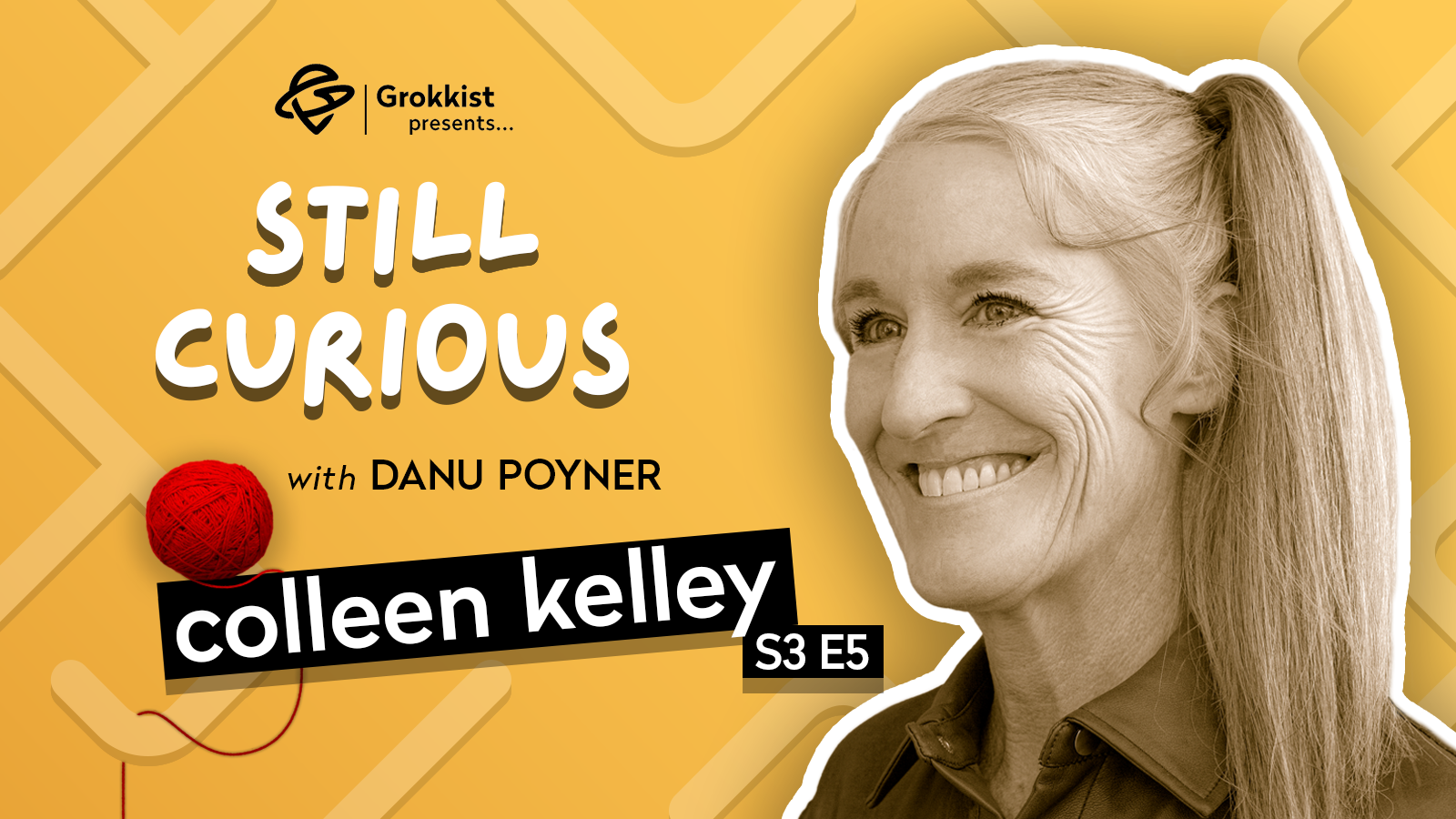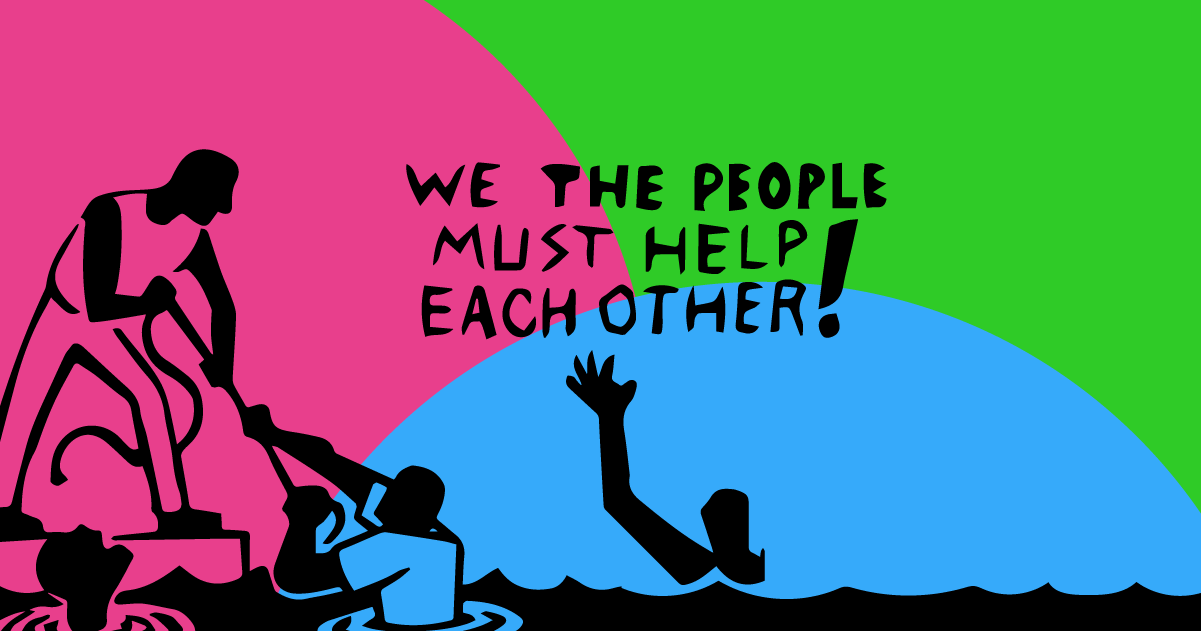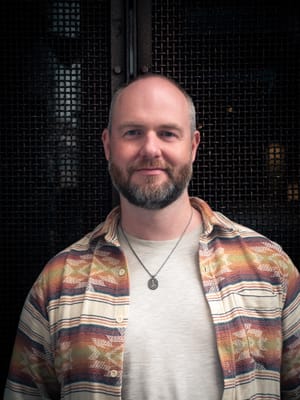You're reading Scholé Supplement, the newsletter that celebrates curiosity, learning and life as a grokkist.
New here? Learn what we're about, or check out our 5-min music video on reimagining education. We respect your inbox – edit your profile or unsubscribe here if this isn't for you.
Lots to share in this edition, let's get straight into it! -Danu
📣 How to spot a grokkist: 5 character traits, and a look inside Nathan Dufour's Introduction to Philosophy for Ecological Activism course.
🟢 Highlights from the Grokkist Network, plus our upcoming "Let's Talk Mutual Aid" event
🎙 "You don't need a lab coat": my podcast conversation with Colleen Kelley on transforming chemistry education through imagination and play
🍬 And in Snackables...
#1 - household surrealist art
#2 - a short film about Japan's 'evaporated people'
#3 - a statistical analysis of Bob Ross paintings
#4 - early computer art in the 50s and 60s
#5 - are dangerous toys good for kids?
I made a new homepage video
I made a new 4-min video for the homepage that introduces the concept of a grokkist and explains what we're trying to do as an organisation.
Showing up on video is still new for me (I've finally got used to the sound of my own voice on the podcast!) and I'm still finding my way with it. All feedback welcome!
How to spot a grokkist: 5 character traits
Long-time readers will know that one of the most enjoyably challenging parts of this project for me is to find good, meaningful language and categories to describe what it means to be a grokkist.
It has to be broad and inclusive enough to resonate with the many different walks of life, interests, ages, means, and motivations that grokkists bring to the conversation.
But it also has to be specific and recognisably distinct enough to actually mean something beyond just an empty affirmation or a hollow catch-cry. It needs some shape, some teeth, and some stakes.
It's an ongoing effort.
Here's my latest attempt. It's not perfect, and it won't be the last. I'd love you to hear from you what stands out and what turns you on or off about it.
How to spot a grokkist: 5 character traits
Grokkists are people who approach the world with curiosity and a thirst for knowledge, who embrace the multi-hyphenate life, and who aren't afraid to leave things better than they found them.
But what does it mean to be a grokkist, exactly? Here are five characteristics that define our community:
- Curiosity
- Thirst For Learning
- Multi-hyphenate Hummingbird
- Squiggly Career
- Leave Things Better Than We Found Them
Let's unpack each of these traits, and hear how it sounds when people express them...
A look inside our 'Intro to Philosophy for Ecological Activism' course
In this 2-min video, Nathan Dufour talks about his inspiration for creating the Intro to Philosophy for Ecological Activism course (hosted by Grokkist), its design, and the promise of extra-institutional education.
We're now halfway through the second sequence. Enrolment is evergreen so you can jump in anytime and catch up, or be part of the next of the next sequence when it starts, or both!
“You don’t need a lab coat”: transforming chemistry education through imagination and play - Colleen Kelley | S3E5

Dr Colleen Kelley is a chemist and the creator and founder of Kids’ Chemical Solutions, a comic-book based chemistry curriculum that aims to transform chemistry education through imagination and play.
We discuss Colleen's personal journey and squiggly career as a grokkist, and her mission to make chemistry more accessible and enjoyable for everyone.
Everyone can learn chemistry. This mythology that surrounds it, that it's heavily based in math and that it's hard, everyone gets brainwashed by that.
I'm calling bollocks on all of that. You can be successful with very little math. I have not had math since 1985 and I'm still going.
It's one of those things when everyone says, like in Finding Nemo, "don't swim over there, it's dangerous!" So everyone believes it. And it's been like that for over a hundred years in our education system. Everyone should learn chemistry. And the reason is so that we can preserve our world.
I had a comment from an educator saying, well these comic books are cute, but they're not going to change anything. And I felt like saying "hold my beer, I'm going to change everything..."
Key Topics
- How Colleen is making chemistry more accessible and enjoyable for everyone, regardless of perceived math abilities, and the importance of trust and curiosity in unlocking imagination and real learning
- Why fear is the number one barrier to learning chemistry, and the importance of understanding chemistry to preserve our world
- How Kids' Chemical Solutions connects chemical concepts to everyday life and allows students to solve mysteries using chemistry
- How being a grokkist following her joy with no plan led to Colleen’s squiggly career path and her creation of Kids' Chemical Solutions
🟢 Grokkist Network
Events and Highlights
Highlights
- Last week we held our 'Let's Talk Psychedelics' discussion, which was cosy and delightful. Perspectives and personal stories were shared, out of which emerged a tapestry of enriching reflections. As someone without any personal experience in this area, I personally learned a lot. We decided not to record it, out of respect to everyone's privacy and to facilitate rich, spontaneous and unguarded discussion without fear of self-censoring.
- I asked 'who are your moral heroes?' in the message board and this prompted some fascinating responses and a rich discussion of meaningful personal influences and whether 'moral hero' is a useful idea in the first place.
- The group read-through and bi-weekly discussion of the Hitchhiker's Guide to the Galaxy book series continues. We're now halfway through the second book.
Featured Event

Let's Talk Mutual Aid
Thu 29 June 7.30-8.30pm CDT (check your timezone)
(Online | Free to Attend)
'Let's Talk' events are informal grokkist conversations in which we create space to explore a topic or practice through the perspective of what makes it meaningful to those present.
We nominate one or more people to informally lead a discussion, for whom the topic or practice forms part of the spool of their red thread.
The discussion is an occasion to unspool meaningful experiences and reflections to others who also care. It's also an opportunity for those unfamiliar with the topic to ask questions or simply enjoying listening in.
'Let's Talk' sessions are not recorded. This is to respect everyone's privacy and facilitate rich, spontaneous and unguarded discussion without fear of self-censoring.
The event is being hosted on the Grokkist Network events platform. To RSVP, join the network or reply to this email.
2-min video introduction to our Let's Talk Mutual Aid event
🍬 Snackables
Assorted awesome links, just because.
#1 - Household surrealist art

Helga Stentzel is a London-based artist who finds joy in unexpected places. Her Insta feed is full of delightful household surrealism. I squealed with delight at her series of clothesline animals, especially the laundrosaurus.
#2 - A short film about Japan's 'evaporated people'
A 17-min short film about the 80,000 johatsu-sha – “evaporated people” – who voluntarily disappear each year in Japan. A mix of interviews with evaporated people themselves ("I was sick of the world but didn't have the courage to die"), the people who take care of them ("The lack of second chances in Japan makes people feel they have no option but to run away") and a look inside the 'night moving' organisations that help them disappear ("It's now double or triple what it was before the pandemic"). Pairs nicely with Oyama Shiro's 'A Man with No Talents: Memoirs of a Tokyo Day Laborer'.
#3 - A statistical analysis of Bob Ross paintings

Data journalism site FiveThirtyEight has done an entertainingly unnecessary statistical analysis of the complete works of Bob Ross, the iconic American painter and television host known for his soothing voice and captivating artistry. Includes explanations of conditional probability and clustering, for example this note on the 18% of Ross' paintings that contain a charming little cabin: "Given that Ross painted a cabin, there’s a 35 percent chance that it’s on a lake, and a 40 percent chance there’s snow on the ground. While 72 percent of cabins are in the same painting as conifers, only 63 percent are near deciduous trees." You can also download the dataset should you wish to follow your own fun.
#4 - Early Computer Art in the 50s and 60s

An annotated inventory of the relationship between artist and machine that helps provide a historical perspective to current debates over generative AI art, beginning with Ada Lovelace wondering in the early 1800s whether Charles Babbage's original Analytical Engine might one day produce creative work. Includes examples of generative dance performances, stereoscopic art, robotic mobiles and mechanical plotters.
Molnar remembers her peers were “scandalized” and felt she had “dehumanized art” but she describes using automation to augment her process as feeling very organic. Making room for randomness allowed her to open up the space of possibilities she was exploring, before narrowing it down to the results she was interested in.
#5 - Are dangerous toys good for kids?
🙏 Thanks to Grace C for introducing me to Van Neistat, also known as the Spirited Man.
"He is what I would describe a creator, fixer, re-tooler, and designer who does things for the sake of purity of form, idea, or process. He is a bit neurotic, bites his nails to the nub, perfectionist, and also loves his family above all else. I'm a fan of his thinking, his craft, and his pursuit of excellence in all things he does." - Grace C.
The video Grace selected to share is about how to safely introduce kids to dangerous things so they can build resilience without having our own fears projected onto them. This take reminds me a lot of my podcast conversation with Erich Leidums of That Mountain Life.
I also couldn't help being intrigued by the video on carrying out an 'unauthorised repair' on local playground equipment after following the proper bureaucratic channels failed to yield any results after 3 years.
Edit your profile or unsubscribe here.
Want to deepen the relationship?
- Join the Grokkist Network – connect with other grokkists
- Become a Grokkist Supporter – your $3/mth helps keep us going
- Be a guest on the podcast – inspire others with your journey
- Work with me 1:1 - I can help you find your red thread, unearth your tacit knowledge and/or put together a grokkable
- Get a Reimagine Education profile – we'd love to feature your work









Member discussion